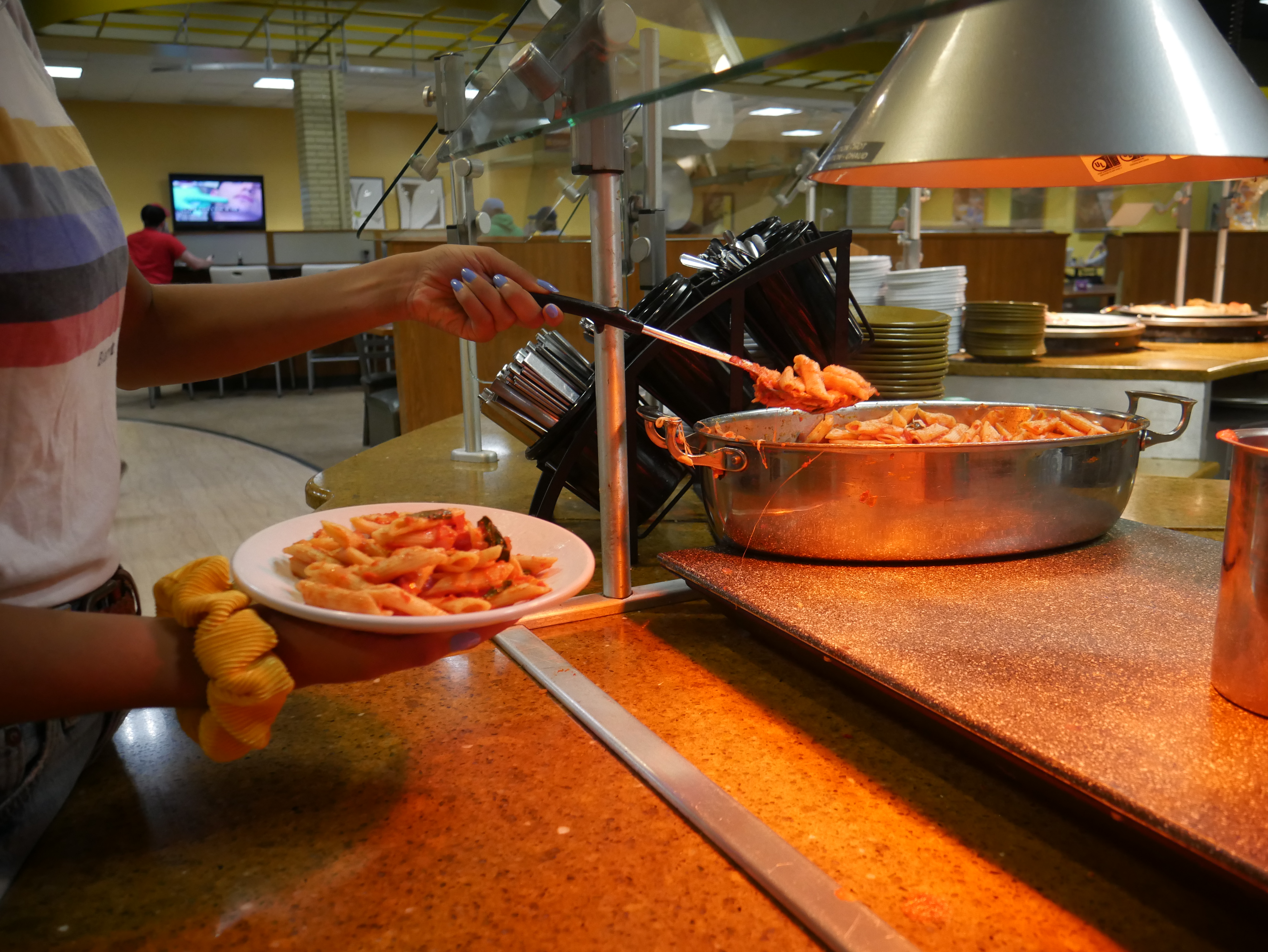Food insecurity is a topic that is not always talked about, although it affects Winthrop’s campus in some way everyday. Though it may not be as visible as some other issues, there are a number of students who struggle with food insecurity. In 2017, Wanda Koszewski, human nutrition department chair at Winthrop University, conducted research pertaining to food insecurity.
“There have been three studies done,” Koszewski said. “One was not done by us [Winthrop], one was done across South Carolina schools and all three studies correlate to about 38-40 percent of students are food insecure.”
Miranda Knight, assistant dean of students, defined the problem and a few ways that Winthrop is working to resolve the issue.
“I think it means not feeling secure and knowing that you don’t have the ability to eat when you’re hungry and obtaining the nutrients that you need,” Knight said. “There are a lot of things that impact students. Winthrop students aren’t limited to just food insecurity. It can be house insecurity, financial insecurity and other things of that nature. Some students came from families that were already facing this issue while others are new to it and are still learning to adapt to it.”
Koszewski shared a few factors that may lead to food insecurity.
“Some of the factors that lead to that are having to pay for school, healthcare needs
(such as prescription medicine, accidents, etc.), housing and other things of that nature,” Koszewski said. We do find that off–campus students are more likely to be food insecure than on-campus students, because off–campus students have to pay for rent, food and other daily costs. Winthrop has already resolved that issue with first-year students, as they are required to purchase a meal plan. What I’d like to do in a year or so from now is to do the study again to see if the new bus system has helped decrease food insecurity because transportation was a problem, too. With the bus system, students can get to more budget-friendly grocery stores. Currently, we’re looking at the factor of resiliency, and that’s a study that we’ll be starting in about a week to test if students with high food insecurity have low resiliency.”
Already, Winthrop has done and is doing so much to combat this issue. “There’s actually a small emergency fund on campus,” Knight said. “I don’t put a big blast out to students, but I blast it out to faculty and staff who have more personal relationships with the students. I connect with financial aid and etc. to begin this whole process that I do, and then there are times when we can help a student temporarily.” Knight said that students, if granted the fund, can use it to pay for textbooks, medical bills, or even registration fees. “When you’re hungry, you can’t learn, and when you have to pick food over a book, you can’t learn,” Knight explained.
Some people will even donate gas cards for students with internships so that they may have the funds to drive from campus to their job. In addition to this, a food pantry was started on the third floor of the DiGiorgio Student Center. The pantry has all sorts of different types of food that students can choose from. Knight also keeps a drawer of toiletries in addition to food.
“There are different ways that I get food for this,” Knight said. “Sometimes people offer to donate food. Typically, once or twice a year, there’s a staff conference like those faculty have a conference center and then staff has a food drive around campus. At the end of the semester…especially in the spring, we put out boxes in the residence halls so that we can collect non-perishable food items that students donate.”
Koszewski also talked about ways the nutrition and biology department have been contributing.
“We hold farmers’ markets. The food is a lot more inexpensive because students don’t have to worry about going through the middle man, the grocery store,” Koszewski said.
She mentioned that students love to watch cooking shows, but a lot don’t actually know how to cook. With the farmers market, students are being sold fresh fruits and vegetables as well as other products that can make healthy meals. They even hold demonstrations on how to cook those meals during the semester.
If you or someone you know is struggling with food insecurity, do not hesitate to see Knight and take advantage of the food pantry.
Photo: Mason Foster/ The Johnsonian




